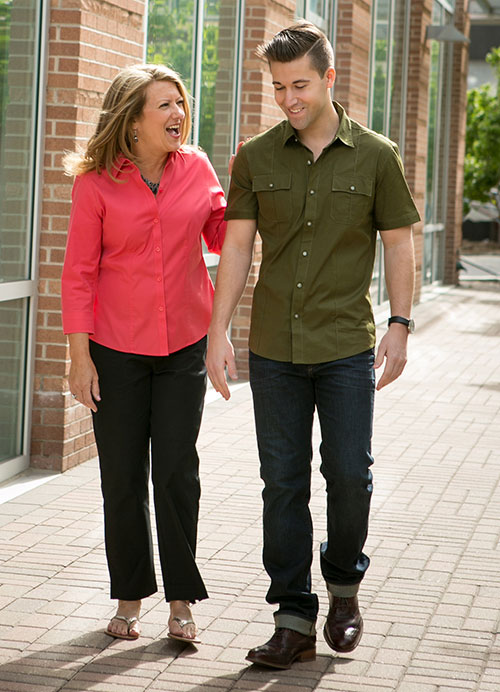
Tools for Triumph over Anxiety & Depression
Connect | Relate | Recover
ESCAPE from Dark PlacesGuideposts to Hope in an Age of Anxiety & Depression
Escape from Dark Places is a motivating story of a mother-and-son journey to triumph over anxiety and depression, answering questions such as, How big is the problem? Why is the number of those suffering trending upward? And how can we stop the stigma? The author draws on history, psychology, science, theology, and philosophy to construct a solution and looks at generational theory for ways to bridge the abyss that separates boomers and millennials. The book provides practical guidelines for engaging young people and their parents, grandparents, mentors, and church leaders in effective intergenerational dialogue, a practice that will inspire societal and spiritual reconnects, fight indifference, create significance, stop the stigma—and spread hope.
Buy Now Read More


Ambra Watkins
Ambra is a boomer mom intrigued by the promising yet perplexing millennial twentysomethings and their successors, the Generation Z teens. In her latest book, Escape from Dark Places, Ambra shares her mother-and-son story of triumph over anxiety and depression. Like many mothers, Ambra fell victim to the idea that moms are part of the growing problem, not the solution, but she soon discovered "it does not have to be that way.” Her book empowers moms and others often sidelined from the recovery process to help young people manage their mental health disorders and thrive.
With an MA in English, a project management professional (PMP) certification, and fifteen years of experience building expertise in change management, communication, and training both in the US and abroad, Ambra embarked on her journey of discovery through writing...
G. D. CANNON, Juris Doctor (JD), Master of Laws in International Law (LLM), and College Football All-American"A riveting, revealing, and relevant approach to unlocking the paradoxes of the millennial mindset. The book is an inspiring and insightful tool that compels you to seek and share better ways of living a healthier and more fulfilling life."
Follow
Sign up for Ambra's Newsletter
Tell Your Story
~ Escape from Dark Places“At the onset of my journey, I was uninformed and ill-equipped to provide the support my son needed; I felt guilty. I found that mothers are often regarded as part of the anxiety problem and are seldom included as part of the solution. I felt marginalized. But I soon learned that it does not have to be that way.”
Speaker
With ten years of experience in training development and delivery and six in strategic change management both in the US and abroad, Ambra has the know-how and skills to engage and motivate audiences across generations.
Ambra speaks passionately on how to:
- Communicate with other generations
- Feel strong mentally, spiritually, and physically
- Live abundantly in an era of stress and ambiguity
As a seasoned trainer well versed in multiple disciplines, Ambra is the right choice to engage intergenerational audiences behind the podium or in front of the classroom.
Read More

